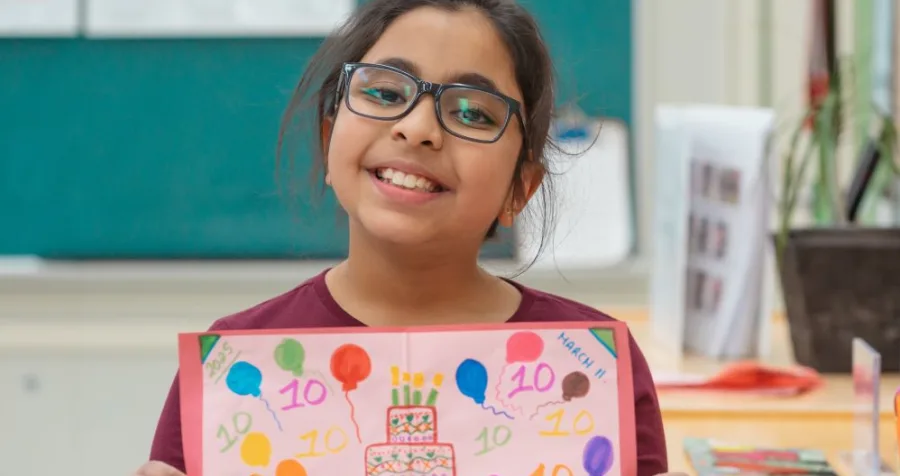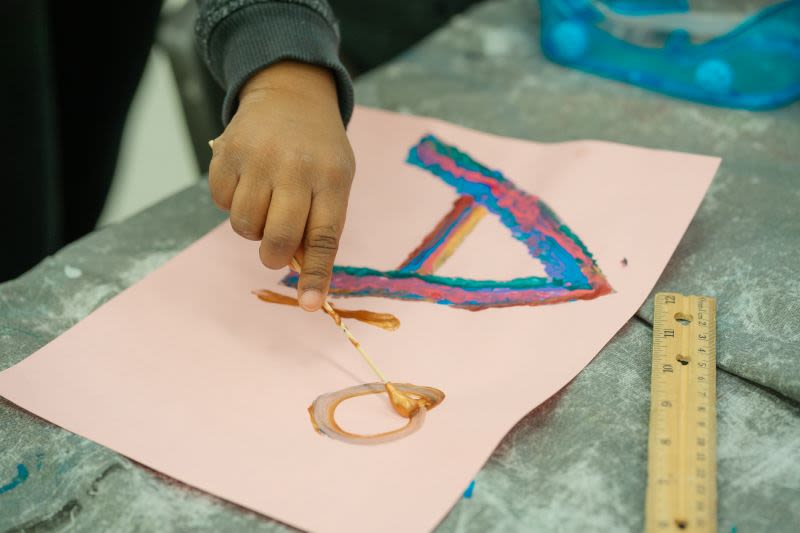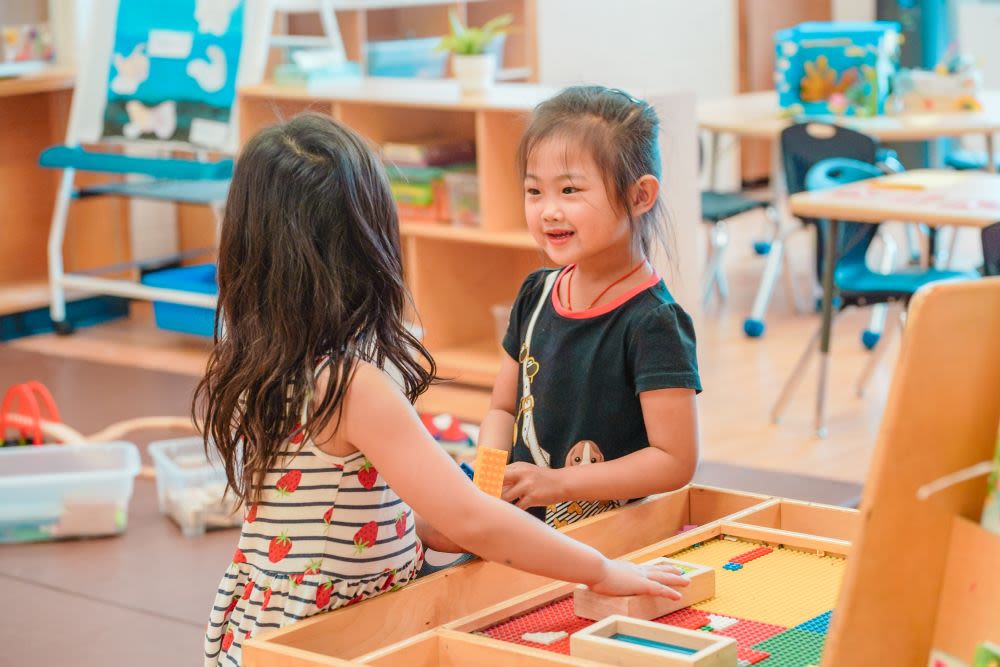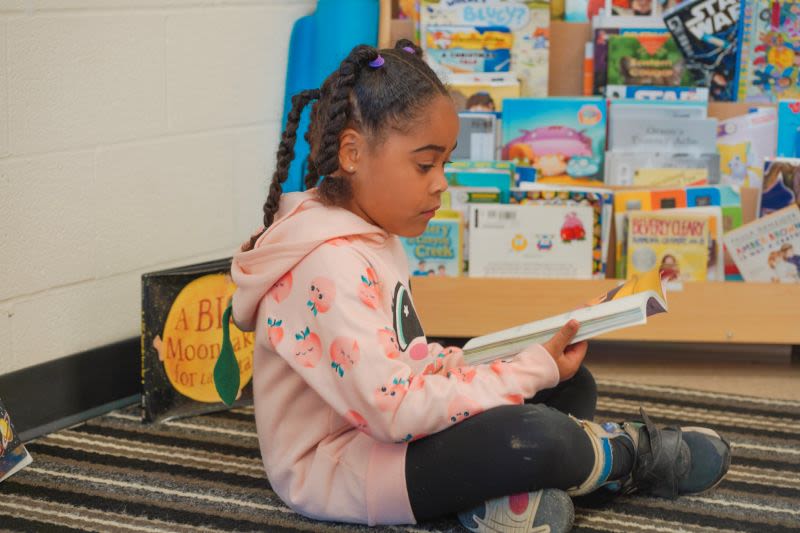
August days are still warm and filled with summer fun. But as September gets closer, families start to feel a shift. Lunch boxes appear on store shelves, bedtime routines inch earlier, and minds begin to think about school.
This period between summer and fall is the perfect time to help your child develop healthy habits, confidence, and a sense of calm.
Here are five simple, thoughtful school readiness tips for children to support a smooth return to the classroom, shared by YMCA educators across the Greater Toronto Area (GTA).
1. Find learning in everyday moments
Tip from Angela, Registered Early Childhood Educator
You don’t need to create a classroom in your home. Learning can happen at the kitchen table, in the backyard, or on a walk to the store.
Angela suggests: “An easy handwriting activity is to make dots [using a marker or pen] that spell out a word or your child’s name. Once dry, have your child connect the dots of each letter. It helps with letter recognition and motor skills.”
Try this at home: Involve your child in writing grocery lists, reading menus, or counting ingredients for a smoothie. These everyday tasks gently build literacy, numeracy, and independence.

2. Talk about feelings, not just school supplies
Tip from Jessica, Early Learning Facilitator
Heading back to school can stir up many feelings, such as excitement, nervousness, and fear. Talking openly helps children feel supported and understood.
Jessica shares: “Even in the early grades, children can face big issues like bullying. Before the first day of school, talk about how to treat others kindly and what to do if they feel unsure.”
Try this at home: Use quiet moments to talk about friendship, kindness, and how to ask for help. Practise respectful communication through daily experiences, like sharing toys or meeting someone new.

You can also explore books that support self-regulation and emotional learning, and read our guide on how to help your child cope with separation anxiety in child care.
3. Build simple habits for independence
Tip from Jenny, Ontario Certified Teacher
Helping your child take responsibility for small tasks gives them the confidence to manage bigger ones at school.
Jenny recommends: “Let your child be responsible for packing their bag or solving small problems on their own. These habits build confidence and focus.”
Try this at home: Create a simple morning checklist for your child to follow independently. Tasks like brushing teeth, getting dressed, and choosing a healthy snack build strong habits over time.
4. Use screen time purposefully
Tip from Patrina, Ontario Certified Teacher
Technology can be a helpful tool when used wisely. A little screen time with the right app can help support learning in fun, age-appropriate ways.
Patrina suggests: “Download affordable learning apps that offer progress reports. They’re great for building reading or math skills during downtime.”
Try this at home: Choose a short, daily “learning screen time” window. Sit with your child as they explore the app and ask what they’re learning. A little shared curiosity goes a long way.
5. Make books part of your week
Tip from Celine, Early Childhood Assistant
Reading together supports focus, vocabulary, and imagination. Celine reminds us that it’s not just about books, it’s about the joy of reading.
Celine shares: “Most library branches offer free summer reading programs and fun learning spaces for children. A library card gives them ownership over their reading choices.”
Try this at home: Visit your local library each week and let your child choose the books, even if it’s the same one again. Repetition helps build comfort and confidence.

A gentle path into September
The shift from summer to school doesn’t need to feel rushed. With a bit of time, a lot of patience, and support from trusted educators, your child can step into September with confidence.
These school readiness tips offer small, meaningful ways to build skills, ease anxiety, and stay connected as a family. At the YMCA, we believe that every child deserves a strong, supported start because readiness isn’t just about school; it’s about feeling safe, capable, and ready to grow.













